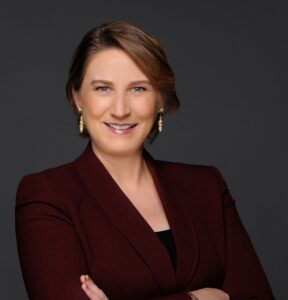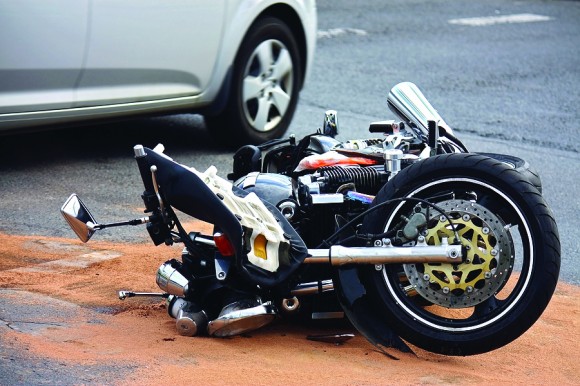Florida families and their auto insurers can rest a little easier after the state Supreme Court decided Thursday that a mom cannot be held vicariously liable for an accident caused by her son who had borrowed the family car.
In Bruce Emerson vs. Kyle Lambert, the court answered a certified question from the state’s 2nd District Court of Appeal. The appeal court had asked if, under the legal doctrine known as “dangerous instrumentality,” a second family member could be on the hook for millions of dollars if the true owner of the vehicle – the dad in this case – was already liable.
“There is no basis to contravene the financial liability regime in (Florida statute) section 324.021(9)(b) or to permit its evasion through artful pleading when more than one family member has the right to direct the use of an automobile,” the high court wrote in its Nov. 16 opinion. “Yet that is exactly what we would do, were we to answer the certified question in the affirmative: We would allow an end-run around section 324.021(9)(b) anytime family members shared a car, even if the automobile’s titleholder were found vicariously liable to the maximum extent provided by statute.”
The father, Keith Lambert, of Wesley Chapel, near Tampa, had given implied permission to his 21-year-old son, Kyle, to take the car one night in 2015. On a curvy road, Kyle slammed into a motorcyclist, Emerson, causing severe injuries and making Emerson a quadriplegic. Under Florida law, the owner of the vehicle can be held responsible, but damages are limited to no more than $600,000, the justices explained.
Although the title to the car was in the dad’s name, it was considered to be the mom’s everyday vehicle and was used by other family members. Debbie Lambert had given explicit permission to her son to take the car that night, the court noted.
The plaintiff’s attorneys included the mom in the legal action, seeking the bulk of a $19 million jury verdict against Kyle. The insurance company was not named in the suit and it’s not clear if the insurer defended the Lambert family. The case has received some attention around the state, due to its major implications for automobile insurance companies. Two prominent legal organizations, the Florida Defense Lawyers Association and the Florida Justice Association, filed amicus briefs in the case.

The suit was seen as a test of how far the dangerous instrumentality doctrine can be pushed in finding financial responsibility for negligence. The century-old doctrine holds that the owner of a potentially dangerous instrument, such as a vehicle, has some responsibility when renting out or loaning the vehicle to others. Florida is the only state that continues to adhere to the doctrine in automobile accidents, although damages were limited by the state Legislature’s 1986 statute that shielded motor vehicle lessors, and by a 1999 tort-reform law, Justice John Couriel wrote for the majority in the opinion.
The 30-page opinion went to lengths to examine the long history of the doctrine and Florida’s legislative changes through the years. Couriel cited court decisions and legal doctrine dating back more than 100 years, including words from US Supreme Court Justice Oliver Wendell Holmes Jr.
In the end, the court upheld the 2nd District Court of Appeal, which had overturned a Pasco County Circuit Court judge in the case. The trial court judge had decided in 2018 that Debbie Lambert could be responsible under the doctrine. That was in error, the appeals court and the high court said.
“Though the jury determined that she (the mom) was a bailee of the Sonata…that is not a basis upon which vicarious liability can be applied under the dangerous instrumentality doctrine since [Keith] Lambert, the undisputed title owner, has also been found vicariously liable for what is, essentially, the same entrustment of the same vehicle,” the 2nd DCA wrote.
Black’s Law Dictionary explains that a bailment is akin to a loan. A bailee is one who borrows the equipment. Both the mom and the son in this case were considered bailees.
The Supreme Court said that the appeals court got it right.
“A straightforward application of the relevant statutes and the dangerous instrumentality doctrine in its original form tells us that liability extends to Keith Lambert,” the justices noted. “The question becomes: Does it extend to Debbie Lambert? No, it does not.”
Because Keith Lambert, the father, originated the danger by giving his son blanket permission to use the car, it is he, and not Debbie Lambert, who, under the dangerous instrumentality doctrine, is in the best position to face Emerson’s claim for damages, the opinion said. “That is the teaching of our cases in light of the applicable statute.”
The justices appeared to agree with the Florida Defense Lawyers Association’s amicus brief, which warned of taking the dangerous instrumentality doctrine too far.
“If both the title owner and the family member can be held vicariously liable, the injured party may be entitled to double recovery under the statute. Such double recovery is contrary to both the state of the law in Florida and public policy,” wrote Elaine Walter, acting chair of the FDLA’s Amicus Committee, and FDLA attorney Nicole Ramirez.
Reversal of the appeals court in the case would have resulted in a judicial expansion of vicarious liability – in violation of the separation of power between the judiciary and the legislative branches, the association argued.
A ruling that held the mom and the family auto insurance company liable, perhaps for millions of dollars, would create unforeseen headaches and expenses for insurers and would put the onus on the insurance industry to educate customers about car titles, Walters and Ramiriez noted.
Reversal would “initiate a tidal wave of change in the longstanding history of how family vehicles are titled and insured,” the FDLA brief reads. “These consequences can only lead to higher costs to consumers without a requisite benefit to the potential plaintiffs.”
Justice Jorge Labarga dissented from the majority opinion, noting that the narrow interpretation of vicarious liability will lead to inadequate damage awards for severe injuries.
Attorneys in the case could not be reached for comment Thursday.
Was this article valuable?
Here are more articles you may enjoy.



 A 10-Year Wait for Autonomous Vehicles to Impact Insurers, Says Fitch
A 10-Year Wait for Autonomous Vehicles to Impact Insurers, Says Fitch  Insurify Starts App With ChatGPT to Allow Consumers to Shop for Insurance
Insurify Starts App With ChatGPT to Allow Consumers to Shop for Insurance  ‘Structural Shift’ Occurring in California Surplus Lines
‘Structural Shift’ Occurring in California Surplus Lines  Florida Engineers: Winds Under 110 mph Simply Do Not Damage Concrete Tiles
Florida Engineers: Winds Under 110 mph Simply Do Not Damage Concrete Tiles 


